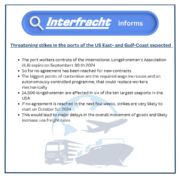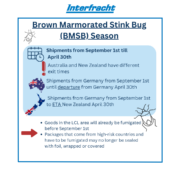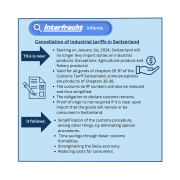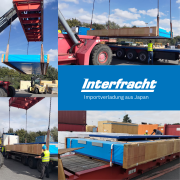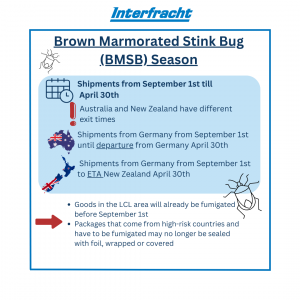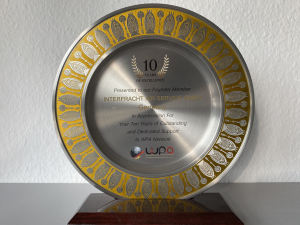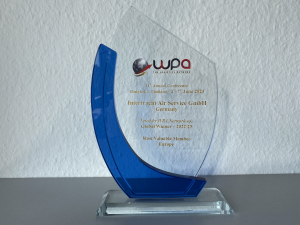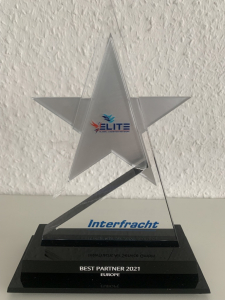On September 1st the fumigation obligation against the Brown Marmorated Stink Bug (BMSB) will start again.
Please be aware that all LCL Cargo will already be fumigated before September 1st. All cargo originated from high risk countries, which need to be fumigated, must no longer be sealed with foil, wrapped or covered. Please note that a wrapping net, for example, should be used instead. In addition no food, pharmaceutical products or seeds may be loaded in the groupage containers.
The fumigation obligation applies for cargoes to Australia starting on September 1st 2024 till Departure from Germany on April 30th 2025. For New Zealand the BGSM Season also starts on September 1st, but ends with ETA New Zealand an April 30th 2025.
For any questions please contact our export-colleagues.
BMSB Season 2024 Merkblatt engl








